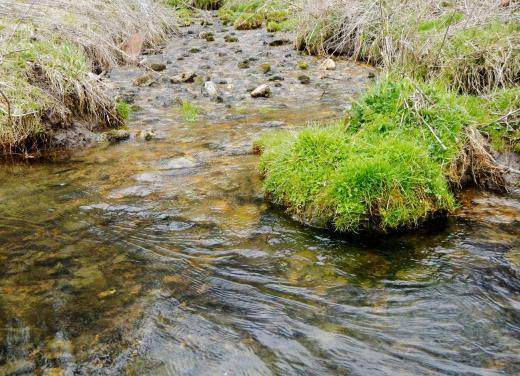WITU Opposes Assembly version of Wetlands Bill
The Wisconsin State Council of Trout Unlimited (“WITU”) joins its partners in the sporting community in opposing AB 547 as amended by the Assembly Committee on Regulatory Licensing Reform on Feb. 1, 2018. WITU believes that both conservation and responsible development of our communities are possible with the right framework. AB 547 as amended falls far short of this, and we are disappointed that the bill leaves so much of our state’s ecologically valuable wetlands unprotected. We look forward to continuing to improve the bill and we hope that the State Senate can help us accomplish that effort.
Wisconsin Trout Unlimited believes an improved bill would address the following concerns:
- Rare and High Quality Wetland definition does not protect all portions of Class I & Class II Trout Streams.
WITU recommends extending protections to all non-federal wetlands that are “hydrologically connected to” Class I or II trout streams. We are encouraged to see protections for wetlands directly adjacent to the headwaters of our trout streams. We would like to see similar protections given to isolated wetlands whose groundwater connections provide the cold water refuges that allow our fisheries to thrive throughout the heat of Wisconsin’s summer months.
- Rare and High Quality Wetland definition should include Sedge Meadow wetlands.
Sedge Meadow wetlands are a key component to the hydrology of the Central Sands area of Wisconsin. Trout streams in this region are stressed by high amounts of groundwater pumping and protection of “Sedge Meadow” wetlands would help buffer these streams.
- Urban Wetlands definition is too broad.
By including towns and sanitary districts in the definition of urban wetlands, many rural areas would fall under the category of “urban wetlands”. Under this amended bill, even wetlands on Madeline Island, the most famous of all the Apostle Islands in Lake Superior, would be considered “urban wetlands”.
- Lack of mitigation fails to account for the functional value loss of urban wetlands.
Mitigation, when used correctly, can be a valuable tool used to encourage the smart growth and sustainable development of our urban communities. Mitigation requires us to think before we fill in a functioning wetland.
Wisconsin Trout Unlimited is appreciative of legislative efforts to protect the valuable isolated wetlands connected to the headwaters of our trout streams as well as important high quality wetland types like Alder Thicket and Calcareous Fen, but we hoped the bill would go further.
Wisconsin Trout Unlimited and its volunteers are working to ensure that future generations have access to cold, clean, fishable water. We fear the amended version of AB 547 will move us further away from that vision.


